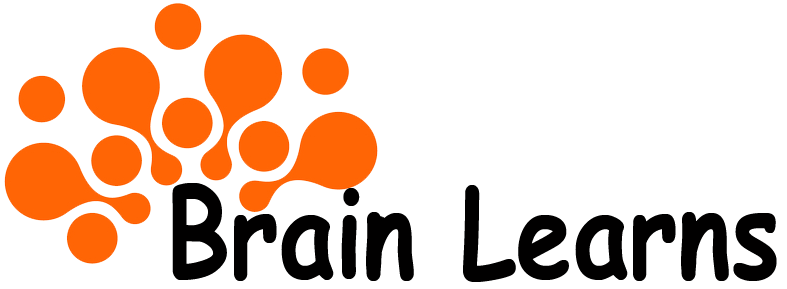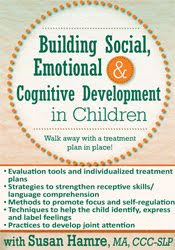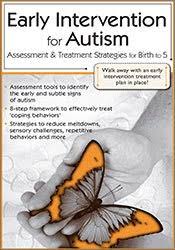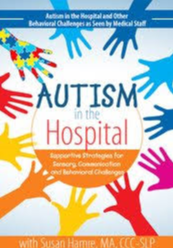🌟 New Year Offer 🌟
Celebrate 2025 with 30% OFF on all products! Use code: NEWYEAR2025. Hurry, offer ends soon!
Available for Pre-Order. This product will be available within a few days.
Karen Lea Hyche & Susan Hamre – Early Interventions, Social-Emotional, Sensory & ASD Development
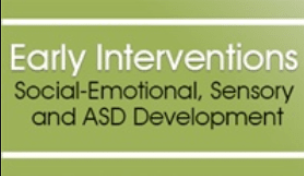
What if we told you that you could prevent disruptive and social-emotional behavioral concerns in children? Even for those exhibiting early signs of Autism?
You CAN! When you’re able to identify the subtle signs of developmental delays and diagnose early, you can effectively interrupt and replace the behavioral concerns with effective treatment strategies. With this online course, you’ll walk away confident in your ability to make positive changes at an early age to influence children’s behaviorsand help improve self-regulation, social skills, and overall development.
Gain the activities and resources you need to promote long-lasting social-emotional growth for infants and young children who have developmental delays, behavior issues or speech and language delays:
- Treatment techniques to STOP temper tantrums and meltdowns, including difficulty with transitions
- Assessment tools to identify the early and subtle signs of autism and sensory processing disorders
- Brain-based interventions to keep children on-task and focused on people or activities
- Strategies to incorporate into the home, daycare, school, and clinic
- And so much more!
Through case studies and video demonstrations, you’ll sharpen your critical observational skills to recognize the symptoms early and develop children’s performance in executive function, pre-academics, and motor skills before their disruptive coping behaviors become their norm later in life…
Module 1 :
Social-Emotional Development:
Successful Sensory-Based Strategies for Birth to 5 Years
National expert, Karen Hyche OTD, OTR/L, will share her 20+ years of experience to bring you the strategies you need when working with infants and young children who have sensory processing disorders, autism spectrum disorder, development delays, behavior issues or speech and language delays to improve their social-emotional development. Social-emotional health is influenced by our physical and sensory system as well as our environment… that’s why Karen will also provide you with treatment techniques that work in the home, daycare, school, and clinic.
Foundations of Social-Emotional Development: Birth- 5 Years
- Behavior
- Temperament
- Attachment & relationships
- Disorders and delays that impact development
- Sensory and motor developmental factors
- Foundations for treatment: Current research
Evaluation Tools & Assessment for Service
- Family assessments
- Five area assessments
- Social-emotional assess
Treatment-based Strategies for Motor Development
- Sensory integration
- Strength and coordination activities
- Interactive Metronome
- Music and movement
- Timing and sequencing
Sensory-based Strategies for Feed
- Assessing sensory areas that affect feeding;
tactile, olfactory, gustatory and proprioception - Mealtime behaviors: Routine, structure, and scheduling
- Four step sensory approach
Strategies for Behavioral Disorders
- Routines and schedules to decrease behaviors
- Daily report cards to improve self-regulation
- Impact of sleep and nutrition on behaviors and strategies for each
Strategies for Emotional Disorders
- Self-regulation technique to avoid meltdowns
- Build self-esteem and confidence to improve social skills
Communication Strategies
- Visual schedules to decrease frustration
- Augmentative communication to improve social and emotional development
- Social-communication for developmentally appropriate peer play
Cognitive Strategies
- Multi-sensory experiences to improve cognitive and social skills
- Personal stories to improve school and community behaviors
- Video-modeling to improve peer interaction
Module 2 :
Sensory Motor Play:
Improving Self-Regulation, Social Skills, and Development
Join Robbie Levy, MA, OTR/L as you uncover how sensory, motor and play activities impact self-regulation, social skills, and development. Learn cutting-edge, brain-based interventions for kids exhibiting excessive temper tantrums, limited motor skills, overly aggressive play, and much more…
Overview of Sensory Systems
- Emphasis on tactile, vestibular and proprioceptive
- Visual, auditory, olfactory, gustatory
- Body in space/body awareness
- Modulation – when is it a problem?
Impact of Sensory on Behavior, Performance, and Learning
- Attention, self-regulation, organization, executive function
- Motor output (gross, fine, handwriting)
- Activities of daily living (ADL’s)
- Behavior, social skills, and self-esteem
Effective Intervention Strategies for:
- Sensory:
- Use all 7 systems-we are more than just auditory and visual learners
- Modulation-characteristics of hyper and hypo systems
- Concentrate on foundation skills and deep pressure/heavy work
- Sensory Lifestyle/Toolbox – How to use what’s right there
- Sound therapies and music- utilizing what you hear to change behavior and performance
- Environmental modifications
- Interactive Metronome, Brain Gym and more
- Self-Regulation:
- Yoga, Pilates, Me Moves-How movement helps
- Breathing, oral-motor-using the ribcage and mouth to regulate
- Meltdowns-prevention and what to do if you can’t
- Transitions- how to help!
- Social stories, visual-cognitive strategies and more
- Play:
- The 5 different types of play and their role in development
- Use “Theory of Mind” framework to facilitate play and regulation
- Enhancing independent play vs. adult/computer-directed play
- Activities to enhance creative play, ideation and planning abilities
- Activities to prepare for core curriculum goals in K and early elementary
Module 3 :
Autism:
Assessment & Treatment Strategies for Birth to 5
With over 40 years of experience, autism expert Susan Hamre, MA, CCC-SLP will help you sharpen your critical observational skills to recognize the early and subtle signs of autism. You’ll learn the behavioral differences between neurotypical and at-risk infants so that once a diagnosis is made, treatment can begin immediately. Walk away with new and improved strategies to reduce ‘coping behaviors’ like meltdowns, sensory challenges, under-developed communication and more.
Would you like to receive Karen Lea Hyche & Susan Hamre – Early Interventions, Social-Emotional, Sensory & ASD Development ?
Screening and Assessment
- Measure developmental milestones
- ‘Red flags’ of autism
- Subtle differences in neurotypical and at-risk infants
- The latest research in early intervention
- Video case studies:
- Neurotypical and at-risk development
- Subtle, easy to miss signs of autism
- Distinct results of early intervention
Treatment Framework: Interrupt/Replace Coping Behaviors
- Underpinnings of displayed behavior
- Recognize and support sensory seeking/ avoiding actions
- Pair preferred and non-preferred actions/activities to enhance change
- Replacement activities that can interfere with aberrant behaviors
- The power of distraction that can alter rigid behaviors
- Stimulate engagement as initially related to their interests
- Unstick the ‘sticky’ attention
- Steps to broaden a child’s play-based activity
Strategies/Techniques to Treat ‘Coping Behaviors’
- Meltdowns/tantrums
- ‘Stimming’
- Sensory seeking/avoiding
- Reduced engagement
- Reduction of social reciprocity
- Hyper-focusing
- Resistance to cuddling/being held
- Eating/sleeping challenges
- Repetitive behaviors
- Under-developed communication
- Resistance to change
Treatment Case Studies
- How to begin treatment with a 9-month-old
- 14-month old who does not respond to pain
- 2 year old with hyper-focus issues
- Build Customized Treatment Plans
- Practice designing realistic goals
- Dissect behaviors to build effective treatment plans
- Design a treatment plan for your client
- Reduce Insurance Denials
- Writing obtainable goals
- Documentation: Treatment steps to show progress
Course Features
- Lectures 0
- Quizzes 0
- Duration Lifetime access
- Skill level All levels
- Students 0
- Assessments Yes
